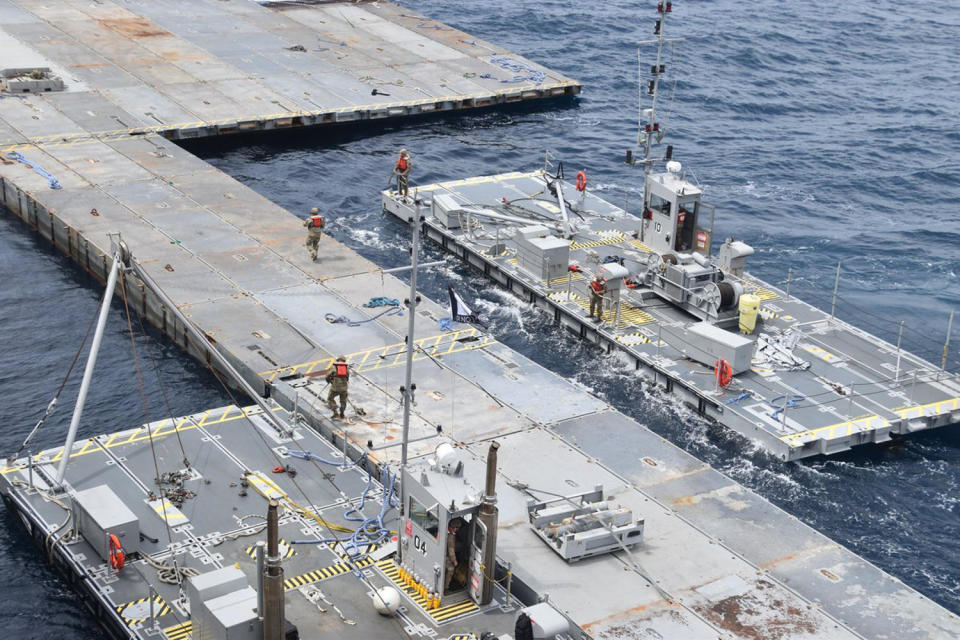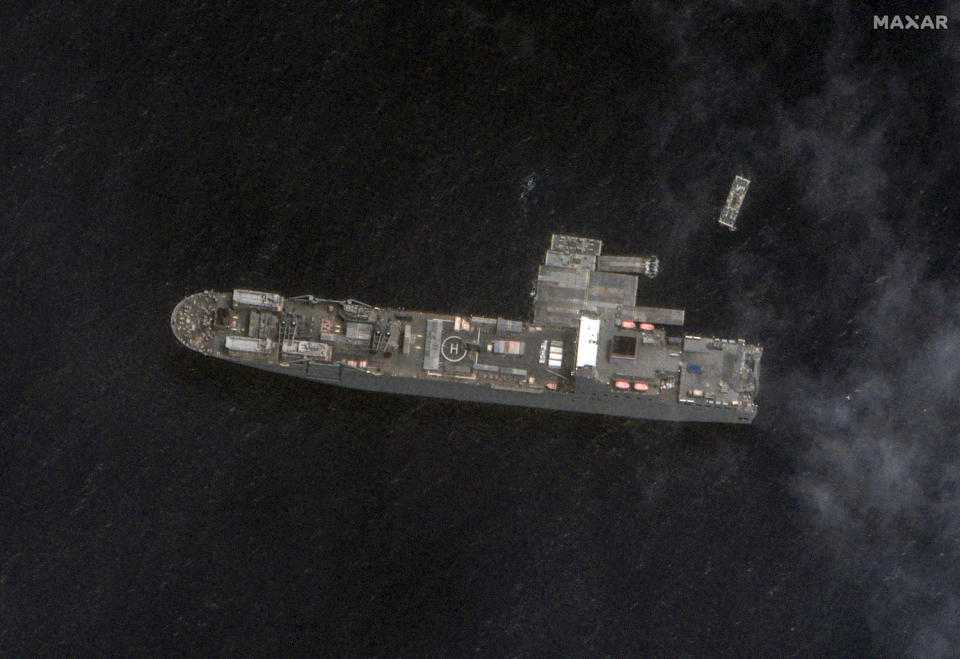A massive U.S. dock to help deliver aid to Gaza is completed
The U.S. has successfully towed a floating dock system for the delivery of critical humanitarian aid to the shore of the Gaza Strip.
The U.S. Central Command announced it had anchored a "temporary pier" to the beach in Gaza at around 7:40 a.m. local time (12:40 a.m. ET) Thursday.
"As part of this effort, no U.S. troops entered Gaza," CENTCOM said in a post on X, adding that trucks carrying humanitarian assistance were expected to begin moving ashore "in the coming days," with the United Nations expected to receive the aid and coordinate its distribution.
NBC News was first to report Wednesday that the system would be fully installed within a day.
The U.S. military began towing the system from the Israeli port of Ashdod, about 20 miles north of Gaza, on Wednesday afternoon. Once put in place, three U.S. officials said delivery of food and other aid could begin in the first 24 to 48 hours after installation.
The dock system was expected to be anchored 3 to 5 miles off the coast, and food and other aid will be moved from the dock to a causeway on Gaza's beach, which is expected to be installed overnight.

In a statement, a defense official said that "components of the temporary pier that make up our Joint Logistics Over-the-Shore capability, along with military vessels involved in its construction, began moving from the Port of Ashdod towards Gaza, where it will be anchored to the beach to assist in the delivery of international humanitarian aid."
Defense Secretary Lloyd Austin gave Central Command Commander Gen. Michael “Erik” Kurilla permission to move forward with installing the dock, known as a JLOTS system, on Tuesday, the officials said.
The system had been assembled and waiting in Ashdod since earlier this month, but the Pentagon had not approved moving it because of both weather and security concerns, the officials said. The sea is expected to be stable for the next few days and the security situation remains largely the same, so the decision was made to move it Wednesday.
The aid delivery system is complicated, with civilian aid ships, a dock, trucks, smaller U.S. Army boats and a causeway all involved in moving the supplies to the beach, with U.S. Navy ships for security. But once it is operational, it can provide dramatically more aid than the airdrops. Defense officials say the first 48 hours of its operating should deliver more aid than all of the airdrops to date combined.

The U.S. began shipping the elements to build the system from Virginia to the Mediterranean in March, just weeks after President Joe Biden announced plans for the dock and the delivery of the aid in his State of the Union address.
This article was originally published on NBCNews.com

